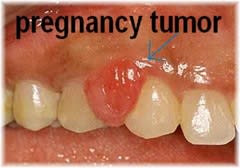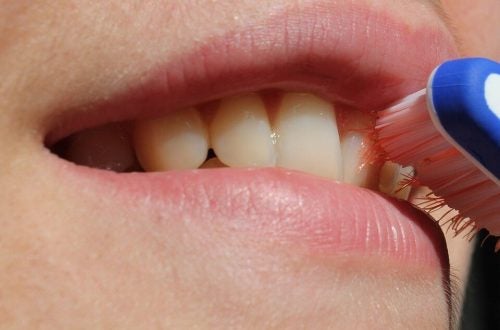Gingivitis During Pregnancy

Contents:
- What Causes Gingivitis?
- Symptoms
- Treatment of Pregnancy Gingivitis
- How to Prevent Pregnancy Gingivitis
Pregnancy and Gingivitis
Gingivitis is now considered to be the most common gums disease. It is a chronic inflammation of the gums, in which the connection of teeth with gum tissue and alveolar bone is not destructed. Pregnancy gingivitis is a very common form of gingivitis. With its main characteristic being an increase in the size of the gums, this disease received a name gingival hyperplasia.
What Causes Gingivitis?
Pregnancy gingivitis is caused by the hormonal changes in the body of a pregnant woman. Great hormonal changes are caused by the influence of such hormones as progesterone, human chorionic gonadotropin, and human chorionic somatomammotropin produced by the placenta and fetus. The production of these hormones continues through the whole pregnancy period, with a decrease only before the delivery.
If a woman has a normal pregnancy without any complications, then the hormonal changes are unlikely to cause any problems in the body. Still, pregnancy gingivitis is still diagnosed among more than 20 % of pregnant women. This rate goes up in complicated pregnancy.
Often pregnancy gingivitis is caused by the same reasons as a regular gingivitis. The pregnant body is more susceptible to developing inflammation. Only 2 % of all gingivitis cases are caused by pregnancy itself.
Dentists name other reasons for pregnancy gingivitis such as vitamin deficiency, metabolic disorders, and toxicosis. Pregnancy gingivitis can develop as early as the first or second trimester and increase up to the delivery. During the second or third trimester it can become a chronic disease.
Symptoms

Main symptoms include:
- Increased growth of the gum tissue and interdental papillae that partially covers the teeth;
- Swollen red gums;
- The slight pain in the gums, that increases when touching;
- Gums bleeding (especially during the brushing);
- Increased bacterial plaque;
- Bad-smelling breath;
- Difficulty when chewing (especially hard foods).
Pregnancy gingivitis like regular gingival hyperplasia can be classified into three forms:
- Mild form with gum covering about 1/3 of the tooth;
- Moderate form with gum covering up to 50 % of the tooth;
- Severe form with gum covering more than 50 % of the tooth.
Treatment of Pregnancy Gingivitis
The treatment of pregnancy gingivitis includes a complex of measures against the disease itself and also against the factors causing it. Treating pregnancy gingivitis is better early in the pregnancy so that to minimize the negative effect on the fetus and the mother.
The best way is to prevent gingivitis by seeing the dentist for check-up prior to pregnancy. The treatment (regardless of cause of gingivitis) usually starts with the professional cleaning that removes bacterial plaque and tartar. It is followed by therapy with anti-flammatory medications that induce vascular permeability (heparin ointment, 3 % acetylsalicylic ointment etc.). To get the gingival tissue back to its normal size, the following medications can be used: lydase, glucose, and novembichinum.
Additionally, a pregnant woman with gingivitis can use massage therapy or physiotherapy treatments like electrophoresis or darsonvalization. During the treatment patients need to change their diet by including foods rich in vitamins. In serious cases a gingivectomy (a surgical removal of enlarged gum tissue) can be performed under local anesthetics. If a pregnant woman has other diseases, treating them is also important for pregnancy gingivitis.
How to Prevent Pregnancy Gingivitis
Knowing that a possibility of pregnancy gingivitis exists, a pregnant woman should implement these preventive measures early in her pregnancy:
- Increase vitamin-rich foods intake (vegetables, fruits etc.).
- Practice good oral care (regular brushing with mild toothbrush, using mouth rinse etc.).
- Active flossing to remove the food from between your teeth.
- Try to eat less sweet and sticky foods.
- Visit your dentist regularly for check-ups.